Your Cart is Empty

Shop By Vehicle:
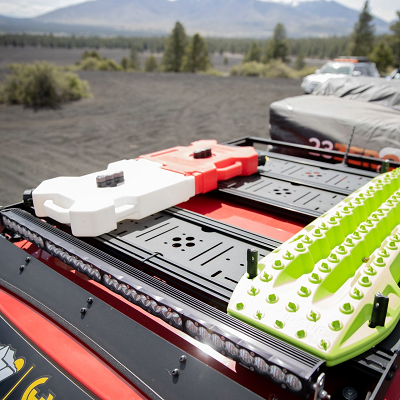
Roof Racks
Bed Racks
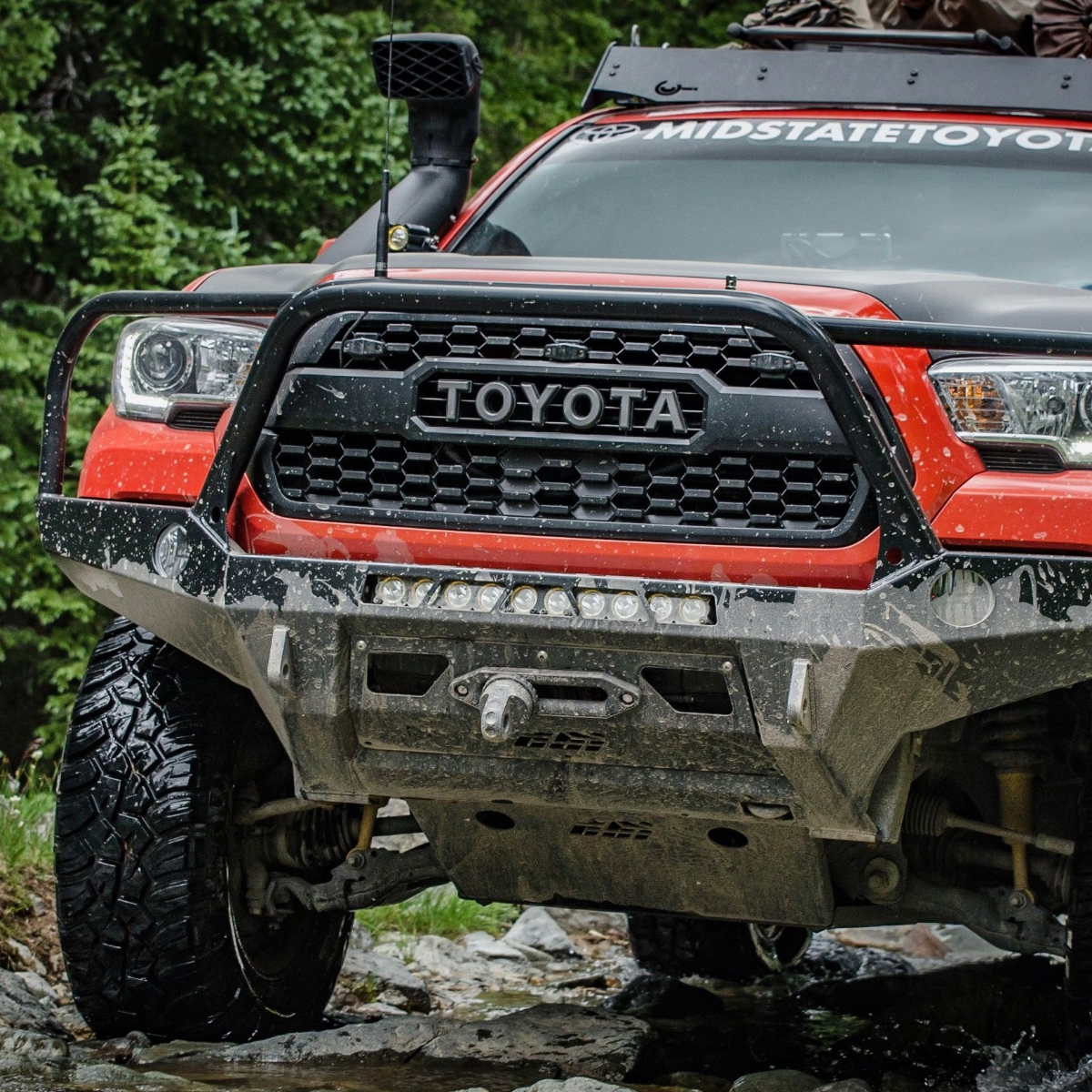
Front Bumpers
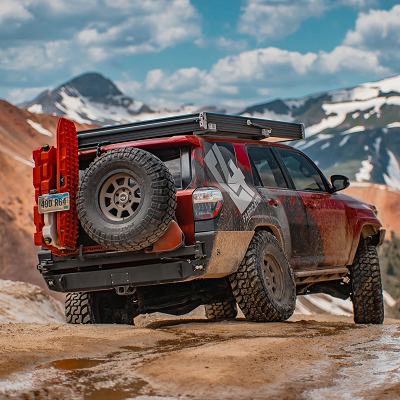
Rear Bumpers
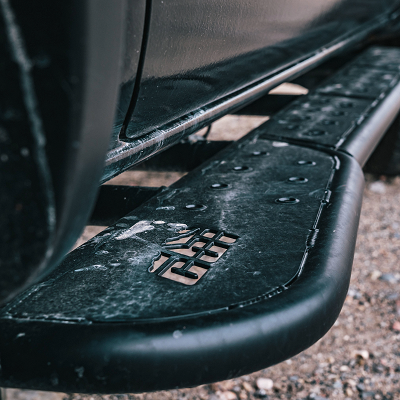
Rock Sliders
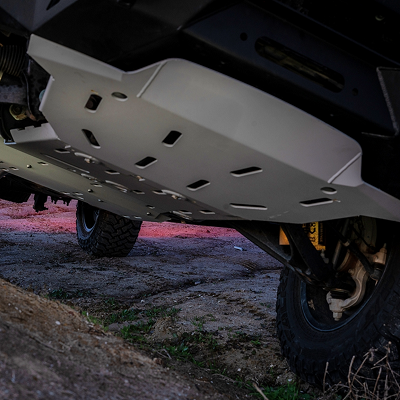
Skid Plates
June 03, 2025 9 min read
After years of building and testing various 4Runner suspension setups, I've learned that upper control arms are often the most misunderstood component in the suspension system. Many owners focus on shocks, springs, and lift kits while treating upper control arms as an afterthought. This approach typically leads to poor handling, accelerated tire wear, and compromised off-road performance.

The factory upper control arms on your 4Runner work adequately with the stock suspension geometry. However, once you install a lift kit or modify your suspension setup, these OEM control arms become a limiting factor. The wrong upper control arm choice can turn an otherwise excellent suspension build into a handling nightmare, while the right aftermarket upper control arms can transform your vehicle into a capable off-road machine with excellent road manners.
Upper control arms connect your vehicle's frame to the upper portion of the front knuckle assembly, controlling wheel movement and maintaining proper suspension geometry. These components work in conjunction with lower control arms, shocks, and springs to manage how your wheels move through their range of travel.
The upper control arm is crucial in determining your vehicle's camber and caster angles. Camber affects tire contact with the road surface, while caster influences steering stability and wheel return. When you install a suspension lift, the factory upper control arms might no longer maintain optimal geometry, leading to negative camber that causes excessive inner tire wear and poor handling characteristics.
Quality aftermarket control arms address these geometry issues through extended length, adjustable mounting points, or redesigned pivot locations. They also typically feature upgraded ball joints or uniball connections that provide better articulation and durability compared to stock components.
The need for aftermarket upper control arms depends primarily on your suspension modifications and intended use:
Suspension Lift Over 2 Inches: Once you exceed a 2-inch lift, the factory upper control arms create geometry problems that affect handling and tire wear. The stock control arm length can no longer maintain proper camber angles, resulting in negative camber that wears the inside edges of your tires prematurely.
Aggressive Off-Roading: If your adventures involve serious rock crawling, desert running, or extreme trail conditions, the limited articulation of OEM control arms becomes a handicap. Aftermarket control arms provide the range of motion needed for maximum suspension travel without binding.
Long-Travel Suspension Builds: Any long-travel kit requires upgraded upper control arms to accommodate the increased wheel travel. The factory components simply don't have the geometry or strength to handle extended suspension movement.
Chronic Alignment Issues: If you're constantly fighting alignment problems or experiencing rapid tire wear after installing a lift, your upper control arms are likely the culprit. Quality aftermarket control arms often resolve these issues immediately.
Blindly getting UCAs defeats the whole purpose of getting them; while most aftermarket upper control arms are better than stock, they might not work for your needs. So here are a couple of things to consider:
The materials used in upper control arm construction directly impact strength, weight, and durability. Most aftermarket control arms use either steel or aluminum construction:
Steel Construction: Offers maximum strength and durability, making it ideal for aggressive off-roading and heavy-duty applications. Steel upper control arms can handle significant abuse without failure, though they add weight compared to aluminum alternatives.
Billet Aluminum Construction: Provides excellent strength-to-weight ratio while reducing unsprung weight. Quality aluminum control arms offer adequate durability for most applications while improving suspension response through weight reduction.
The pivot connection design significantly affects performance and maintenance requirements:
Ball Joint Upper Control Arms: Feature sealed ball joint connections similar to factory components. These require minimal maintenance and provide reliable operation for daily driving and moderate off-roading. However, ball joint designs limit articulation compared to uniball alternatives.
Uniball Designs: Use heim joints or uniballs that provide maximum articulation and range of motion. These excel in extreme off-road conditions where suspension travel is critical. However, uniball upper control arms require regular maintenance and inspection to ensure proper operation.
Quality aftermarket upper control arms address the geometry problems created by lift kits through various design approaches:
Extended Length: Longer control arms help restore proper camber angles by repositioning the upper ball joint or uniball connection point.
Adjustable Design: Some control arms feature adjustable lengths that allow fine-tuning of suspension geometry for specific applications.
Redesigned Pivot Points: Advanced designs relocate mounting points to optimize caster and camber throughout the suspension's range of travel.
Not all upper control arms work with every suspension setup:
Lift Kit Integration: Ensure your chosen control arms work properly with your existing lift kit components, including springs, shocks, and any spacers or extensions.
Shock Clearance: Some aftermarket control arms may interfere with certain shock configurations, particularly with reservoir shocks or unique mounting arrangements.
ABS Lines and Brake Components: Verify that your new UCA won't interfere with ABS lines, brake lines, or other components during installation or operation.
Different upper control arm designs have varying maintenance needs:
Sealed Ball Joint Systems: Require minimal maintenance beyond periodic inspection for wear or damage.
Rebuildable Ball Joints: Allow replacement of worn components without replacing the entire control arm, reducing long-term costs.
Uniball Designs: Need regular greasing and inspection to maintain proper operation and prevent premature wear.
Now you know what to consider, here are some of the top brands I've tested over the years that I recommend.
Dirt King has built a reputation for producing some of the most durable and well-engineered upper control arms available for the 4Runner. Their focus on strength and reliability makes them a popular choice among serious off-road enthusiasts.
The Dirt King Ball Joint Upper Control Arms feature 4130 chromoly tubing construction with upgraded Moog ball joints that provide reliable operation with minimal maintenance. These control arms offer increased caster for proper alignment and repositioned pivot angles that reduce joint stress. The Probearing Pro 2 Series bushings combine the free-spinning advantages of poly bushings with maintenance-free elastomer benefits.
For maximum articulation, the Dirt King Heim Upper Control Arms provide the range of motion needed for aggressive off-road use. The boxed plate design features 1-inch stainless steel uniballs and 3/4-inch FK heim joints for maximum strength and adjustability. Military-grade F911 hardware and 17-4 stainless steel misalignment spacers ensure bulletproof mounting.
Both designs come preassembled for quick installation and allow 0-3 inches of lift while providing an additional inch of wheel travel compared to stock components.
But that's not all, for those who are extra serious, they also have the Dirt King Billet UCA, which represents the premium end of their lineup, offering even greater strength and precision manufacturing for the most demanding applications.

Camburg brings decades of off-road racing experience to their 4Runner upper control arms. Their designs reflect the lessons learned from professional desert racing, where component failure isn't an option.
The Camburg Performance X Joint Upper Control Arms feature their proprietary X-joint design that provides excellent articulation while maintaining durability. These control arms work well for both daily driving and serious off-road use, offering a good balance of performance and maintenance requirements.
For maximum performance, the Camburg Kinetik Billet Uniball Upper Control Arms represent the top tier of upper control arm technology. The billet construction and uniball design provide unmatched strength and articulation for the most demanding applications.

Icon Vehicle Dynamics has established itself as a leader in suspension technology, and its upper control arms reflect its commitment to engineering excellence. They deserve a mention for their innovative designs and proven performance.
Icon's upper control arms typically feature advanced geometry correction and high-quality construction materials. More impressive is their proprietary Delta Joint that they put on their UCAs, these joints combine the construction strength of ball joints with the performance of a uniball. Plus it's sealed and greasable, allowing for longer maintenance periods and if the need for maintenance does come, it's easy to do so.
Total Chaos focuses on extreme-duty applications, producing upper control arms designed to handle the most punishing off-road conditions. Their products cater to enthusiasts who demand maximum strength and durability above all other considerations.
Total Chaos control arms typically feature heavy-duty construction with oversized components and robust mounting points. While these may be overkill for mild off-road use, they provide the confidence needed for aggressive rock crawling and desert racing applications.

SPC offers upper control arms that focus on adjustability and fine-tuning capabilities. Their designs often appeal to enthusiasts who want precise control over their suspension geometry and alignment specifications.
SPC control arms typically feature multiple adjustment points that allow optimization for specific tire sizes, lift heights, and driving conditions. On one hand, the adjustability makes them less long-lasting since there are more possible points of breakage, but on the other hand, this has become popular among builders who frequently modify their suspension setups since you can set these UCAs to a T.

UCAs have to work for your suspension not against it, here's how to match your UCA to your suspension components.
For vehicles that spend most of their time on pavement with occasional mild trail use, focus on upper control arms that maintain excellent road manners while providing basic geometry correction. Ball joint designs from quality manufacturers like Dirt King or Camburg offer reliable operation with minimal maintenance requirements.
Look for control arms that provide adequate lift for your suspension while maintaining factory-like ride quality. Sealed ball joint connections reduce maintenance concerns, while quality construction ensures long-term durability.
Overlanding builds require upper control arms that balance durability, maintenance requirements, and performance. These vehicles often travel long distances in remote areas where component failure can create serious problems.
Consider control arms with rebuildable ball joints or high-quality sealed designs that offer extended service intervals. The ability to replace worn components without sourcing complete new control arms becomes valuable when traveling in remote areas.
Serious off-road applications demand maximum articulation and strength from upper control arms. Uniball designs provide the range of motion needed for extreme suspension travel, while heavy-duty construction handles the abuse of rock crawling and aggressive trail driving.
Accept the increased maintenance requirements that come with uniball designs, as the performance benefits justify the additional upkeep for serious off-road use.
Long-travel suspension builds require upper control arms specifically designed to accommodate extended wheel travel. Standard control arms simply cannot provide the range of motion needed for these extreme suspension setups.
Work with suspension specialists to ensure your chosen upper control arms integrate properly with other long-travel components. The entire suspension system must work together to achieve optimal performance and reliability.
Proper installation of upper control arms requires attention to several critical factors:
Professional Installation: While experienced DIY enthusiasts can install upper control arms, the complexity of suspension geometry makes professional installation worth considering. Improper installation can create handling problems and safety concerns.
Alignment Requirements: New upper control arms always require professional alignment to optimize suspension geometry. Don't attempt to drive the vehicle extensively before having the alignment performed by a qualified technician.
Torque Specifications: Follow manufacturer torque specifications exactly, as improper tightening can lead to component failure or handling problems. Use a quality torque wrench and verify specifications before installation.
Break-In Period: New upper control arms may require a brief break-in period where components settle into their operating positions. Schedule a follow-up alignment check after the first few hundred miles of driving.
Choosing the right upper control arms for your 4Runner requires careful consideration of your suspension goals, driving style, and maintenance preferences. Quality aftermarket control arms from established manufacturers like Dirt King and Camburg provide the geometry correction and durability needed for lifted vehicles while maintaining excellent road manners.
Remember that upper control arms work as part of a complete suspension system. The best control arm choice depends on your specific combination of lift height, shock selection, and intended use. Don't hesitate to consult with suspension specialists who can help you select components that work together optimally.
Most importantly, never compromise on quality when selecting upper control arms. These components directly affect your vehicle's handling and safety, making them worth the investment in proven, quality designs. With the right upper control arms properly installed and aligned, your 4Runner will deliver excellent performance both on and off the road for years to come.
How often do uniball upper control arms need maintenance?
Most uniball designs require greasing every 3,000-5,000 miles, with inspection intervals every 1,000-2,000 miles depending on driving conditions. Off-road use increases maintenance frequency significantly.
Will aftermarket upper control arms affect my vehicle's warranty?
Aftermarket upper control arms may affect warranty coverage for related suspension components. Consult your dealer before installation if warranty coverage is a concern, and save all documentation from the installation process.
What's the difference between adjustable and fixed-length upper control arms?
Adjustable control arms allow fine-tuning of suspension geometry for specific applications, while fixed-length designs are optimized for particular lift heights. Adjustable versions provide more versatility but may require more frequent maintenance of adjustment mechanisms.
Comments will be approved before showing up.
Sign up to get the latest on sales, new releases and more …